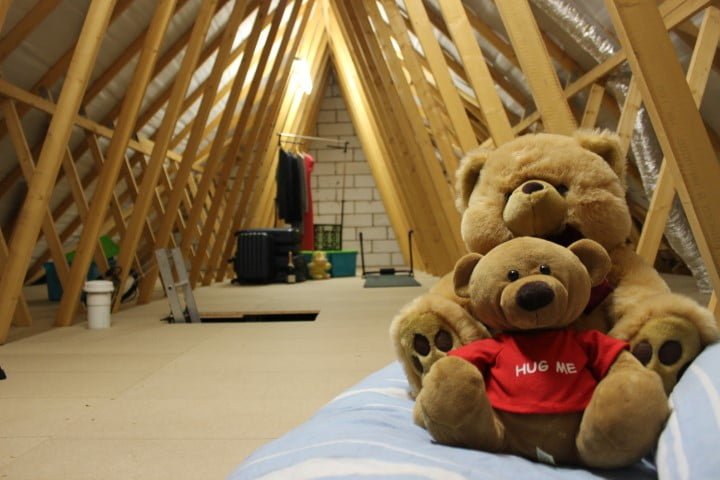
Heating expert Dave Raval gave Britons unique tips and tricks to keep their homes warm this winter despite growing energy prices.
The British heating expert advised Britons to get a thermostatic radiator valve which regulates temperatures around the house. Mr Raval also recommended Britons purchase draft excluders which can be placed in between windows and doors. He urged Britons to insulate their lofts again as he warned a quarter of the heat generated from houses does up through the attic and out of the roof. The ongoing energy crisis has seen many Britons looking for new thrifty ways to save money and cut down on their energy bills, whilst trying to heat their homes effectively.
Mr Ravalold GB News: “So the first thing is a thermostatic radiator valve, so every radiator should have one of these.
“Normally in a house, you would just have a thermostat may be on the wall that regulates the entire houses temperature. But why should all radiators be the same temperature?
“Should the radiator in your hallway be the same as your lounge, should the radiator in your bedroom be on at all when you’re not using the bedroom?
“So these things, they cost about £15 each and are easily available from any DIY store online, and if you can see, I can alter it so completely off or completely on, or anything in between.
“You get fancy ones that do that electronically and they cost about £10 more, and there is no plumbing involved that’s the key thing, literally you just unscrew whatever is there beforehand.
“If you’ve got a really old radiator you might need an adapter, but you unscrew that and put a new one of these on, every radiator should have one of those.
“You mentioned draft excluders, this is a relatively modern door, a draft excluder looks like this it’s sort of a spongey thing with adhesive tape on it.
“I’ve fitted them here, you can see where it sort of squeezes in there and also at the top, and then when the door closes… And you can do the same for windows as well.
Mr Raval added: “The door when it closes if it closes on that and squeezes it and forms a really tight seal… And these cost pennies, if you spend two or three pounds on a door or a window you’re probably spending too much.
“And so go round all your doors, go round all your windows on a cold night and feel with your hands if you can feel a draft, and make sure the next morning you seel that up.
“Instead of using… Certainly, closed curtains if you got those, instead of using thicker curtains… Maybe using door curtains, which used to be something that was popular back in the day. Again it’s there to try and reduce your heat loss.”
He added: “I’ve created a very small mini loft here, so if you look at this, this hopefully might look a little bit like a normal loft where there are joists.
“There is installation between them and most British houses have that, and that used to be two or three inches of the requirement in building regulations.
“But nowadays the Government recommends at least triple that, so almost a foot of insulation, and that’s really important because 25 percent of a house’s heat generally in British houses goes up through your attic and through your roof.”
Britons have been receiving extra funds as part of the Energy Bills Support Scheme in order to help them pay for the increased costs of energy this winter.
The energy price hike has seen many people looking for alternative ways to save money and heat their homes.
Some experts have been trying to suggest other ways to heat homes, such as heat pumps and solar-powered energy systems. Both of these can be an expensive payouts during the cost of living crisis.
The principal policy manager for Net Zero Homes at Citizens Advice, Zoe Guijarro, has spoken about the initial costs of bringing a heat pump into British homes.
Ms Guijaroo said: “Without a doubt, it’s the high upfront costs and the unknown of how much it will cost to run.
“For example, we had a lady that came to us. She lived in a newer built property, but there was something clearly wrong with the heat pump.
“Last winter, not even this winter with our higher energy prices, it was costing £400 a month to heat her home, which is huge.
“Even in the summer, it was costing £200 a month.”
Read the original press release from Express, here.
Welcome to the world’s leading one-stop-shop for all your loft storage and access needs.
Click on the Box(es) below to be taken to the websites of your local LoftZone StoreFloor installer